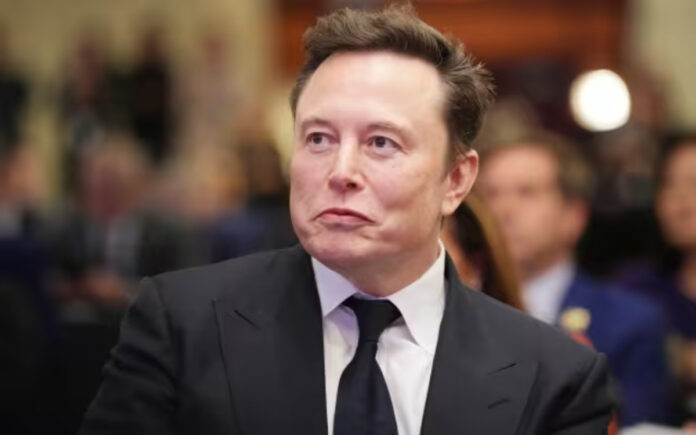Washington: Billionaire entrepreneur Elon Musk waded into the heated debate over former President Donald Trump’s sweeping tax and spending bill, labeling it a “disgusting abomination” and igniting fresh tensions among Senate Republicans already divided over the legislation’s impact on the national deficit.
In a series of posts on his platform X, the Tesla and SpaceX CEO didn’t hold back. “I’m sorry, but I just can’t stand it anymore,” Musk wrote. “This massive, outrageous, pork-filled Congressional spending bill is a disgusting abomination.” He continued, “Shame on those who voted for it: you know you did wrong. You know it.”
His blunt remarks found unexpected allies among fiscally conservative Republicans in the U.S. Senate, many of whom have already expressed deep concern over the bill’s financial implications. The bill seeks to extend the hallmark 2017 Trump-era tax cuts while injecting significant spending into defense and border security.
The House narrowly passed the legislation last month, just one vote over the line. According to the nonpartisan Congressional Budget Office, the bill would balloon the federal debt by $3.8 trillion, adding to the already staggering $36.2 trillion total.
Despite the House victory, the Senate – also under Republican control – is anticipated to revise the legislation, titled the “One Big Beautiful Bill Act,” before attempting a vote by July 4. But Musk’s intervention has added fresh uncertainty to its future.
Senate Republicans on the powerful Finance Committee are set to meet Trump at the White House on Wednesday to discuss making the bill’s business tax breaks permanent, a move experts say would substantially inflate its cost.
Still, some GOP leaders are brushing off Musk’s criticisms. Senate Majority Leader John Thune defended the legislation, saying, “We have a job to do – the American people elected us to do. We have an agenda that everybody campaigned on, most notably the president of the United States, and we’re going to deliver on that agenda.”
House Speaker Mike Johnson was equally dismissive, telling reporters, “My friend Elon is terribly wrong.”
A Political Test for Musk
Musk’s attack on a bill pushed by Trump signals a new test of the billionaire’s political clout, especially just days after ending his formal advisory role in the Department of Government Efficiency (DOGE). Despite high ambitions, his tenure yielded limited cost-cutting success across federal agencies.
Although Musk poured nearly $300 million into Republican campaigns during last year’s elections, including heavy backing for Trump, he recently pledged to scale back political spending and refocus on his leadership roles at Tesla and SpaceX.
Also Read | South Korea’s New President Aims to Delay U.S. Trade Deal Amid Strategic Reassessment
The White House offered a terse response to Musk’s critiques. “Look, the president already knows where Elon Musk stood on this bill,” said spokeswoman Karoline Leavitt. “It doesn’t change the president’s opinion. This is one big, beautiful bill, and he’s sticking to it.”
Divided GOP Faces Tight Vote Margins
Even before Musk’s remarks, Senate Republicans were grappling with internal disagreements. Fiscal hawks are demanding sharper spending cuts than the House-approved $1.6 trillion over the next decade, while lawmakers from rural states are fighting to protect Medicaid and other safety net programs.
Senator Mike Lee, a leading voice among deficit hawks, echoed Musk’s concerns and urged his colleagues to treat the bill as an opportunity to curb long-term debt. “We must commit now to doing so, as this is what voters justifiably expect – and indeed deserve – from the GOP Congress,” Lee wrote on X.
With a 53-47 Senate majority, Republicans can only afford to lose three votes before relying on Vice President JD Vance to break a tie. But hardliners like Lee and Senator Ron Johnson are already voicing doubt that sufficient cost reductions can be delivered in time for the July 4 target.
Also Read | Russian Forces Push Closer to Sumy, Ukraine Warns of Escalating Threat
Meanwhile, other GOP senators are prioritizing protections for Medicaid recipients and continued green energy investments. Senator Jerry Moran emphasized the stakes: “I certainly have an interest in making sure people with disabilities are not harmed. But also, there’s the broad issue of how does it affect hospital reimbursements.”
To bridge the divide, some Republicans have proposed deferring certain tax perks favored by Trump—like breaks for tips, overtime pay, and Social Security benefits—into future bipartisan bills. “Those are all Democrat priorities,” Senator Thom Tillis noted. “I’m not sure why we shouldn’t be doing that in a potential bipartisan bill to create headspace for this bill.”
As July 4 approaches, Republicans face an increasingly complex balancing act: staying true to Trump’s economic agenda, satisfying fiscal conservatives, and managing political backlash from powerful influencers like Musk.



